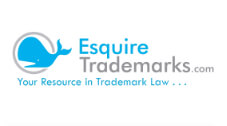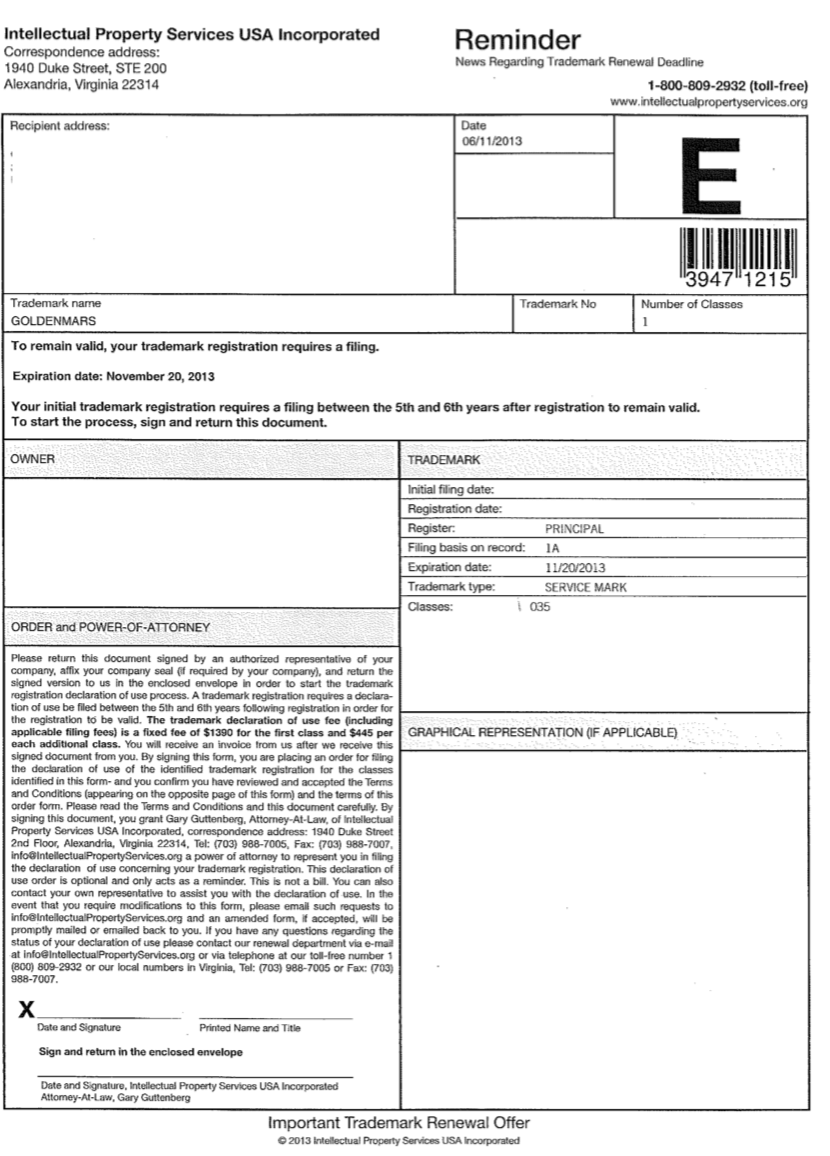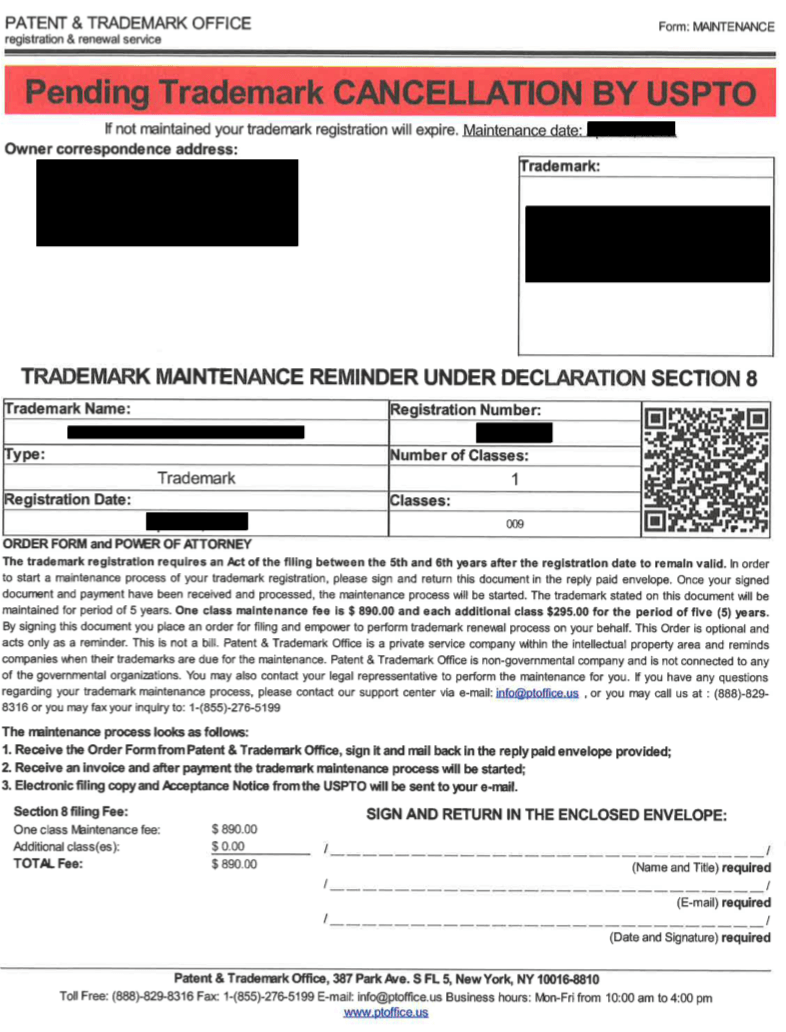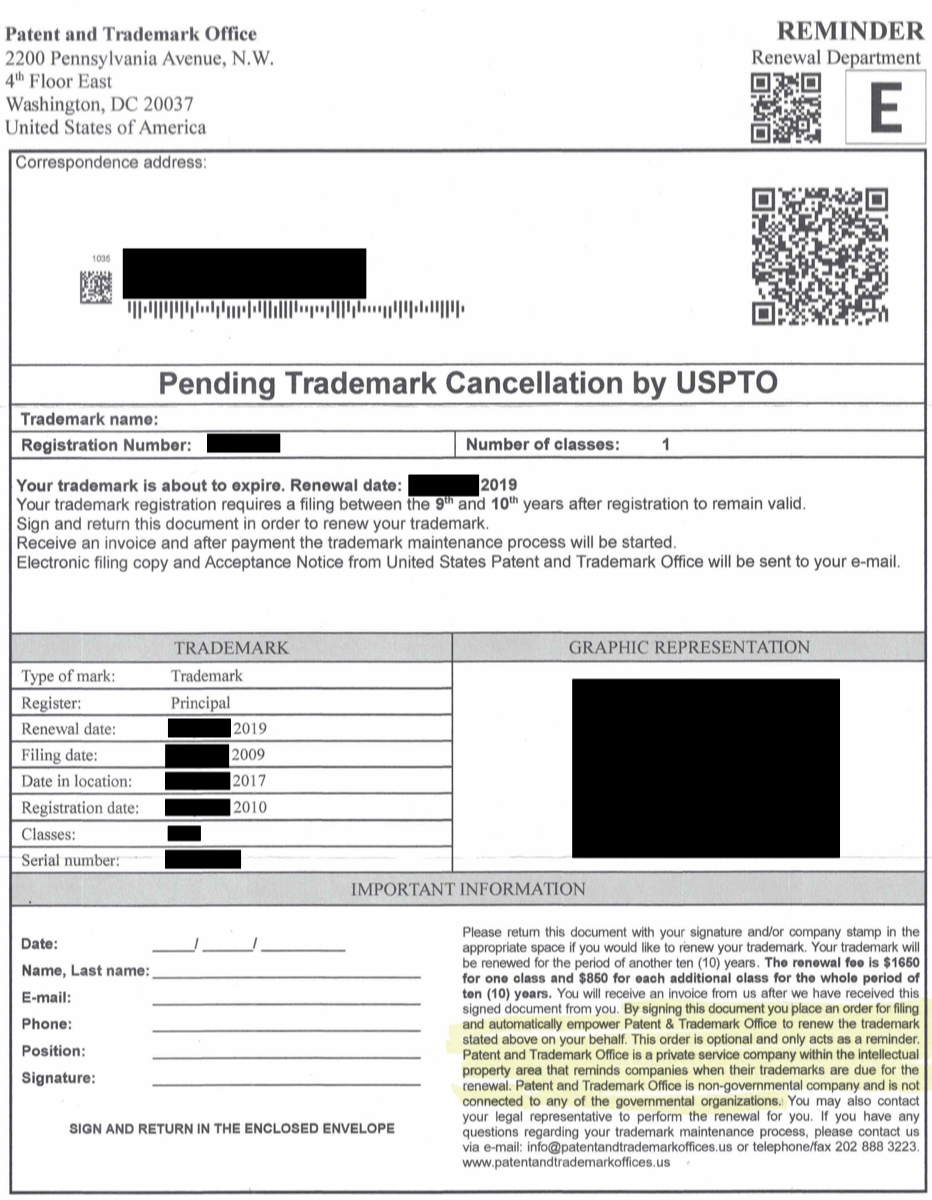Beware of Trademark Office Scams
As a trademark applicant and/or registrant, you should expect to receive multiple trademark office scams. Trademark office scams are often disguised as official notices from the United States Patent and Trademark Office (USPTO) requesting payment of fees and/or threatening trademark cancellation.
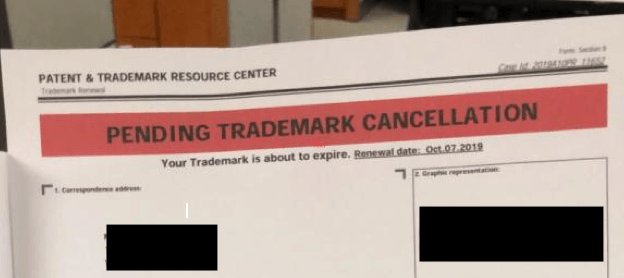
Expect to Receive Fake Trademark Notices Requesting Payment and Throw Them Away
DO NOT RESPOND TO THESE NOTICES. The USPTO will send all official letters and emails to your attorney of record. If you are a client of Attorney Charles Riddle, all official correspondence will come from Attorney Charles Riddle via Riddle Patent Law, LLC or EsquireTrademarks.com.
All Official Notices Will Come From Your Trademark Attorney Charles Riddle via Riddle Patent Law, LLC or EsquireTrademarks.com
A simple rule about trademark scams: If it’s not from your Attorney of Record, it’s a scam. For my clients: If it’s not attached to an email or letter from EsquireTrademarks.com, it’s a SCAM. Throw it away.
Continue reading to learn more about trademark office scams and how to identify them.
Trademark office scams are often disguised as official notices from the United States Patent and Trademark Office (USPTO) requesting payment of fees and/or threatening trademark cancellation.
Fake notices will attempt to deceive by promoting a variety of services and warnings related to trademark maintenance:
- Legal Services
- Assisting with an upcoming filing deadline
- Pending trademark cancellation
- Responding to an office action
- Using a name that resembles “USPTO” in all correspondence
- International Registry Protection
Solicitations will include accurate information related to your trademark such as the filing date or registration number. Private companies are able to find this information through government data publicly available from USPTO records.
Examples of Trademark Scams
The USPTO Educates the Public to Help Identify Trademark Scams
The USPTO is a great resource for trademark applicants and registrants. Visit their article Caution: misleading notices for more information about identifying trademark-related solicitations, what to do when you receive them, and a list of common examples.
